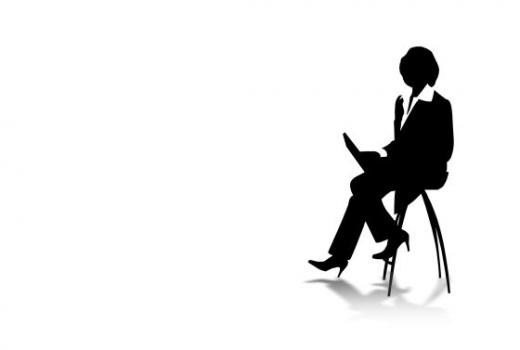Tip sheet on key (confrontation) interview

Tip sheet on key (confrontation) interview
1. Take care about the premises of the interview: the place, the ambient, the ways in which the interviewee can intimidate you.
2. Expose to the hostile interviewee the consequences of a refusal to talk to you. "I'll publish the story any way and there are some serious accusations against you. It's in your interest to clarify it, maybe some are wrong, maybe all are wrong, then I don't have a story and everything is closed". My tip is to try this: "It's OK by me if you don't want to talk now, before to publish the story. Can I conclude that, whatever I'll write, you will not submit to the newspaper any correction? If you do, you must know that there are very few chances your correction to be published".
3. Gain confidence of the interviewee:- don't be aggressive - but persistent.- don't use "trigger" words – but euphemisms.- be professional: explain that you're acting on behalf of the public and you have not personal motivation
4. Use short questions: one sentence, one question.
5. Ask for clear answers, decode the interviewee professional language.
6. Ask "silly" questions on behalf of the audience.
7. Prepare a minimal list of questions that MUST be answered, at any price, unless you want your story to be fucked up.
8. Keep the interviewee on the track, interrupt him when he's divagating.
9. Be prepared about all his possibilities to tear down your stuff. Consider himself as a professional liar – and try to foreseen and to counterattack all his possible strategies.
10. Follow up the answers, ask for specifications
11. Always ask Why?, How?
12. Use the reportage: be aware on how the interviewee act or react after your questions
13. Stress the self contradictions within the interviewee answers and ask him to explain.
14. Reject general statements or invalid arguments, ask for specifications.
The interview - functions and techniques
The journalistic interview is a conversation between a journalist and a source - from small talk, via research interview to confrontational interview.People love to talk - especially about themselves or when they think, they set the agenda. But we interview for the sake of the audience - not to be polite to the interviewee. You get the answer, you asked for.
We also talk about the interview as a journalistic genre. It could be an interview article on a certain case, on a point of view, on an event - anything.The first journalistic genre interview was found in The New York Herald in 1836; a journalist interviewed a brothel procuress, who was involved in a homicide.
The genre interview is not the same as a portrait. But it is essential in a portrait! A portrait is, however, more than just recording spoken words; it is also research (amongst family, friends, colleagues, others) and observations.In this context the interview is a tool in the research - as it is in other articles. We use the interview as a tool even in the making of briefs.In both electronic and print media the interview has different functions: * To the journalist the interview:- documents facts or at least the sources of information- gives human interest to the story- provides components to the composition of the story* To the audience the interview:- is spontaneous- is revealing- is dramatic - the outcome seems open- gives a characteristic of the interviewee - creates an atmosphere- can create a debate- provides knowledge
There are four different types of questions, which should be known to the journalist. Generally leading questions should be avoided:
- Yes/no questions or closed questions (e.g.: Do you like wrestling?)they establish facts
- 5W+H questions they or open questions (e.g.: What do you like?)go thoroughly into facts follow up on questions make answers specific
- Leading questions (e.g.: Isn't it correct that you like wrestling?)they manipulate the interviewee to give the answers you seem to want - untrue answers
- Concluding questions (e.g.: So wrestling is your favorite sport?)they summarize previous remarks
Tips on the interview
- REMEMBER TO PREPARE AN INTERVIEW!- so you know in which direction you want to guide this line of questions.
- DO BASIC RESEARCH BEFORE AN INTERVIEW!- so you know about the subject, you want to talk about.
- NOTE QUESTIONS ARISING DURING THE INTERVIEW! - write down new follow up questions, so you remember to get back to important points or specification of facts.
- REMEMBER WHEN YOU INTERVIEW: - listen and follow up!- ask short questions- ask only one question at a time- ask the 5W+H questions- follow up on your questions- avoid leading questions.- use only yes/no questions for undoubtable clear answers - avoid discussions- ask "silly" questions on behalf of the audience- ask specific, to promote concrete answers and to decode the interviewee's language- ask the interviewee to give examples- ask the interviewee to go into details and explain- ask personally, to promote feelings and experiences- ask provocative, but friendly, to promote opinions- ask critical on behalf of the opponent- ask for the source of information (how do you know?)- keep the interviewee on the track- expose contradictions in the answers, especially between general and specific answers- listen carefully- take notes, also on information you need to follow up - show you are interested, also with your body language- beware of the friends - you don't ask critically- beware of the enemies - you forget to listen- beware of prejudices - taking answers for granted- make sure the interviewee knows he is interviewed
- TREAT THE INTERVIEWEES DIFFERENTLY:
1. The common man - you must help him to express himself.
2. The decision or opinion maker - you must be critical.
3. The expert - you can ask silly questions and decode language.




